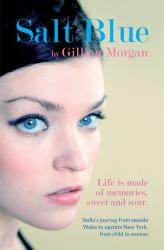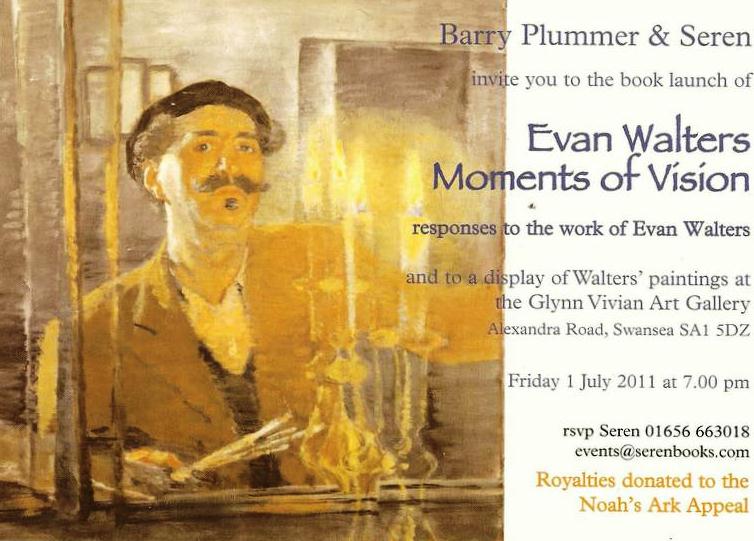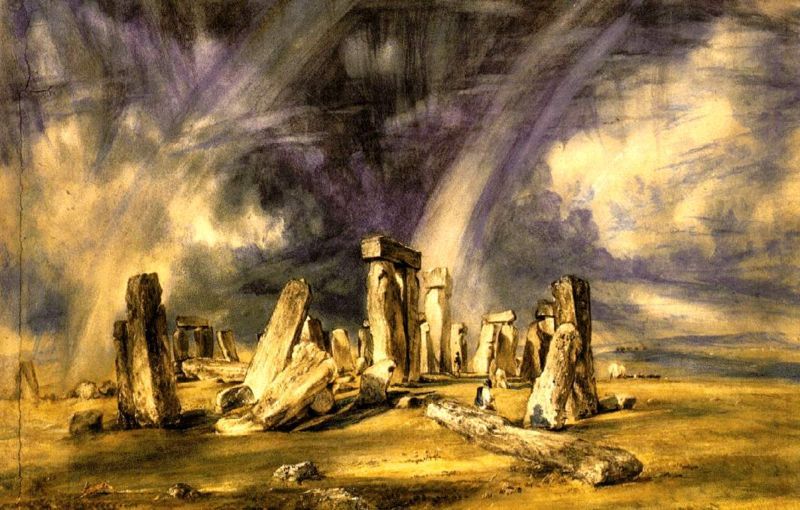Blogs
 |
| Salt Blue |
More about Gillian Morgan
Gillian Morgan lives in Haverfordwest, Pembrokeshire. Salt Blue is her first novel. She trained as a teacher after ten years looking after her daughters, and in retirement gained an MA in creative writing. Read More
More about Honno
Honno is an independent co-operative press run by women and committed to bringing you the best in Welsh women's writing.
It was established in 1986 by a determined group of volunteers who wanted to increase the opportunities for Welsh women in publishing and bring Welsh women's literature to a wider public. They asked the people of Wales to show their support for the new enterprise by becoming shareholders in the cooperative and in the first six months more than 400 people bought shares. Honno continues to be supported by hundreds of individual shareholders who believe in its work. Read More
After watching the Trooping of the Colour yesterday, I went into the garden. The 'Lychnis Coronaria' was in bloom, carmine flowers surrounded by grey silky leaves. Deeply beautiful.
With Royalty and beauty on my mind, Ireturn to the story of Lucy Walter, mistress of the future Charles 11. Lucy has become Colonel Robert Sydney's lover and they are in Holland, with the English court, which is in exile:
It was July, 1648. An air of serenity hung over The Hague, finding an echo in Lucy's heart.Robert Sydney pleased her well.
'I have money to spend, servants to command. Civil war may rage in England but it does not concern me one iota',Lucy remarked to her godmother.
The older woman smiled. Evidently, Lucy was blooming. 'I think you might be content to remain in Holland forever, Lucy'.
The following day, when she was dressing, Lucy made her mind up. She had to tell him soon.
Already,her linen flax dresswas pulling tightly against her round little belly. She embraced her body, protecting the new life growing within her.
That night, when Lucy wasbrushing her hair and her lover lolled on a lace pillow watching her, their eyes met.
'Robert, I have something to tell you'.
Hisheart leapt, but he would not betray his hopes yet. Instead, he asked, teasingly,
'Are you going to say you no longer love me?'
For a moment Lucy did not understand his joke. 'I love you to distraction', she protested, though this was not strictly true, for Lucy was capable ofgiving and receiving love, while still keeping her heart for herself.
'Whatever you have to tell me, whisper it in my ear, Lucy, that we two alone will share your secret.'
And so, with her lips pressed against his ear, Robert Sydney learnt that Lucy bore his child, duein thespring of the following year.
Art lovers will be interested to read:
Swansea-born Evan Walters (1893-1951) was one of a group of Welsh artists (with Vincent Evans and Archie Rhys Griffiths) who represented, with stark honesty, the industrial communities in which they had been reared.
Walters' work captured all aspects of life in a coal mining community, the landscape in Cefn Cyfelach Colliery (1911), the weary wife suckling her child in Mother and Babe (1919).
Art historian, Peter Lord comments on the 'surprise' with which Walters' work was greeted at his first solo show in Swansea in 1920, where observers were "...excited at seeing their industrial community portrayed in an art gallery [the Glynn Vivian] for the first time." ( Industrial Society , p.185)
His later work covered the politics of the coalfield in The Communist (c.1932), the despairing reality of The Dead Miner (c.1935) as well as a number of portraits of 'the miner' including this Welsh Collier (1931) about to 'light up' at the end of his shift. The sitter is believed to be the artist's brother.
____________________________________________________
See you there!
(Detail courtesy of Swansea Heritage Net)
The last few days have beenchilly.Now theenormousash and sycamore trees that bordered the side of my house have gone it takes only a little sunshine to warm the conservatory. Sometimes, it can become unbearably hotin there, but this week it has been perfect.
About two o'clock this afternoon dark clouds blew over Haverfordwest.Heavy raingushed down the gutters and drummed on the roof of the conservatory so loudly I could not sit in there. It was more than an hour before it ceased and periwinkle blue patches of sky appeared.
I couldn't resist going out into the garden and pulling a few weeds. It's much easier to get them out when the soil is moist. I also dug a hole for a little box tree bush that I've grown from a cutting.
Hydrangeas like plenty of water and the soil in my garden seems to suit them. I've different varieties, including mop heads (the servant class) andlace-caps (the more refined types). Paniculata grandiflora are conical and mine are cream but there are now sugary pink varieties to be had, so, yes, I've got to have them.
Last summer I planted 'Black Steel' hydrangeas. The black stems are long and elegant with beautiful deep blue flowers floating on top.
There's nothing more stylish than a big glass bowl of hydrangeas.Occasionally a flower head will flop immediately I cut it and I'm not quite sure why this happens.
I'vecream and pink foxgloves, too, that seed wherever they like in the garden and 'Grannies' Bonnets' (purple aquilegia) growing beneath the eucalyptus.The bordersare full of lime green euphorbia and 'My Lady's Mantle', (Alchemelia Mollis), is good forlightingup a shady cornerorbillowing over a dry stone wall.
I don't like disturbing the soil on the banks if I can help it. This allows the ferns to sprout to four feet tallor more, providinggood ground cover.
Rosa rugosa, the pink rose which producesbig hips in autumn, likes dappled sunshine and is virtually pest free. (Roses that get diseases are definitelynot for me).Watch your fingers, though, it has myriads of fine, sharpthorns.
After the frosts and snows of last wintermany of the more tenderplants, including some of the hydrangeas and palms died, and I have replaced them.
Before I'd finished in the garden this afternoon it went dark again. I gathered up my tools and just as I got under cover,spiky balls of hail shot off the rooftops. Ah, flaming June.
Julia Donaldson, the new Children's Laureate and best-selling author, has spoken out against the Government's plans for closing libraries.
The Haverfordwest Libraryopens Monday to Saturday, when it closes at 1 pm. It has two 'late' nights a week, closingat seven o'clockWhenI was a child my local libraryopened all day ona Saturday afternoon, givingthose who worked in the weektime to browse. I've wondered for years why library opening hours are not more flexible.
Wittgenstein, the philosopher, called language a 'key skill', providing access to other areas of learningand helping us to order our thoughts. We have four vocabularies:listening, speaking, writing and reading. Reading exposes us to a wider vocabularythan we might otherwise have.The more books we read, the greater our language facility becomes.
I'm fond of people's published diaries. Nella Last's 'Housewife 47' gave me hours of pleasure. Nella's writing waspart of a survey during World War 11 andshe describesthe monotonous dreariness of her life.Frustrationsin her marriagebecome apparent and she worriesabout one of her sons. The war gives Nella arolebut when it endsshe slips back into housework again and loses some of her vivacity.
'Housewife 47' comes in aDVD, too, but nothingcan replace the written word andthe feeling of solitude that being alone witha book gives.
Why don't librariesopenon a Sunday?Leisure centres do.More people might use them then.As it's a question of money, libraries are probably doomed. I suspectthat ifthey'd opened for longer hours,more people might have used them and they would not be facing closure now.
Still not sure how all this works, so here goes....
I know that many of you with Welsh links have a strong interest in the old myth of bluestone transport from the Preseli Hills in Pembrokeshire to that ruinous old monument called Stonehenge. It's my mission in life to convince the archaeologists that the myth is just that -- a myth which has no evidence to support it.....
I'm a geographer by training, and I'm convinced that the bluestones at Stonehenge are simply glacial erratics, transported by ice during one of the big glacial episodes. Feel free to take a look at my blog, and maybe contribute to it!
http://brian-mountainman.blogspot.com/
All contributions treated with due respect, so long as they are on the topic......
A Lifetime spent breaking new ground - Margaret Maund 'Decades of Discovery'
By Ceri Shaw, 2011-06-08

This week, at Tonyrefail library, Y Lolfa published the autobiography of Margaret Maund. Her twenties was spent deep in the jungle of central Africa; then she became one of the first women to be ordained as a priest in Wales and also the proud owner of several brightly-coloured Robin Reliants! Margaret Maund has had quite an extraordinary life. Born in the south Wales valleys, she trained as a nurse and midwife and spent three years working in war-torn central Africa in the late 1960s. Many years later she became an Anglican priest, being amongst the first group of women to be ordained in Wales. Now retired from nursing and the ministry, Margaret Maund’s fascinating working life has spawned a third career as a writer and broadcaster. Her autobiography charts the highs and lows of a life spent breaking new ground.
The book was launched at Tonyrefail Library on Monday 6 June, 5–7 p.m. The book is published by Y Lolfa, price £9.95.

|
This week I was slung out of The Hay Festival!
For anyone who isnt aware, Hay-on-Wye is the little Mid Wales town that has become world reknown for second hand books. About twenty years or so ago, a few enthusiasts were chatting over a beer and decided to start The Hay Literary Festival. It is now a huge event with people coming from all over the world to speak or to listen or just to read books in the sunshine (rain).
I thought, where better to gather interest in voting for my novel Cold Enough to Freeze Cows to win The Peoples Book Prize? So, I bribed the children to wear t-shirts that I had printed up for them and we set off in the rain to speak to people.
My plan was for the children to smile sweetly at people to attract their attention. I would then nobble them and ask them to vote for me. To a point it worked. But then the girls started to get bored and then a bit wild, spinning around poles, rolling along the corridors and getting the baby to crawl through the wet grass. My back-up plan was to feed them junk to keep them occupied for another ten minutes.
Being rather a high-brow event, I am still convinced that I wouldnt have got thrown out if I had fed the children oatmeal biscuits or a tub of chopped-up fruit, but my mistake was to give them crisps and horrible chocolatey mini-rolls. It was only a matter of time before Security was called, and I was ejected for unauthorised canvassing...
Therefore, in place of the votes I didnt manage to get from The Hay Festival, I would like to ask whether the good people of Americymru might consider voting for me, please? If so, the website is http://www.peoplesbookprize.com/finalist.php and the book is Cold Enough to Freeze Cows . If anyone does vote, please let me know and your name will be put in my grand prize draw to win a signed copy!
Many thanks! I havent won anything since the 50metre skip in 1978
Hear West Coast Eisteddfod Event Coordinator/Curator Lorin Morgan Richards on BBC Wales, interviewed by presenter Roy Noble:-
http://www.bbc.co.uk/iplayer/episode/b011k23z/Roy_Noble_06_06_2011/
( Start listening at 1.12.20 approx )


